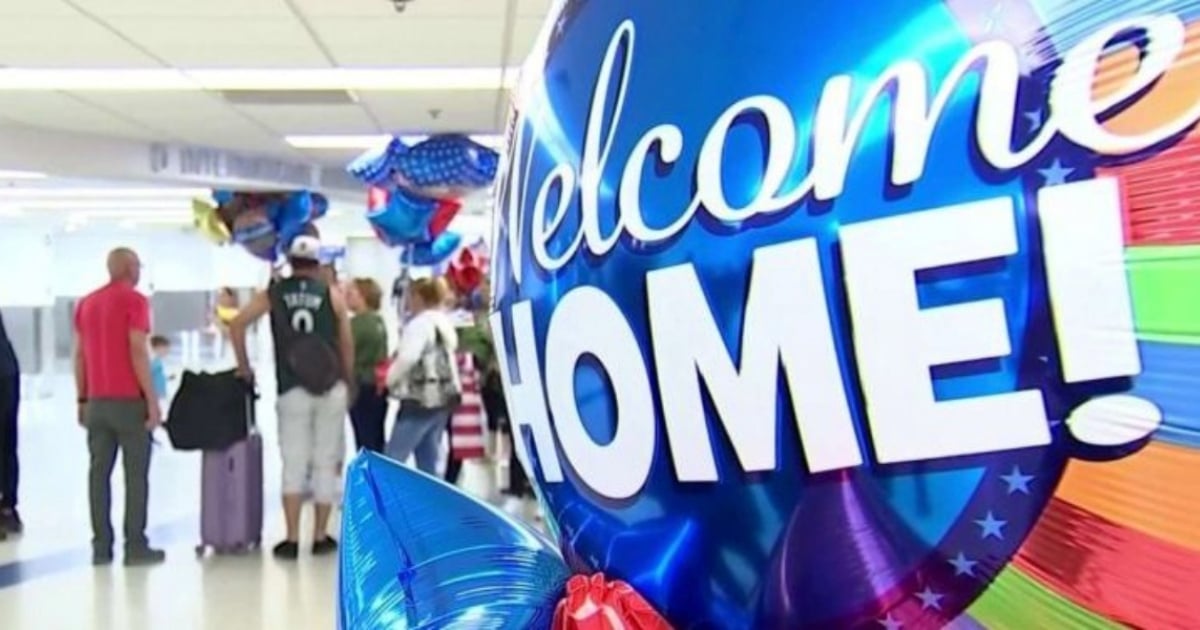
Related videos:
Cubans whose family reunification processes have been approved by the United States authorities are reporting that they cannot fly to the country following Donald Trump's arrival in the White House.
A report by Martí Noticias reveals that hundreds of immigrants from Cuba, Haiti, Colombia, Ecuador, Guatemala, Honduras, and El Salvador have encountered issues boarding their flights to the United States since last Monday.
Olga Lidia Hernández, a beneficiary of the Cuban Family Reunification Program (CFRP), recounted that when she went to board the plane with her two daughters, they were prevented from doing so, and they were only informed that they needed to go to the U.S. embassy for additional information.
"They told me that my flight permit had been denied, and they didn't give me any further explanations," he expressed.
Olga Lidia and her daughters had been waiting for eight years for authorization to travel. Her mother, in Florida, is desperate due to the flight cancellation. "I traveled to Cuba, and we were turned away from the airport. They treated us very poorly. We handled our immigration processes correctly. It's not fair," she said in tears.
The CFRP was suspended for years following the incidents of the so-called "Havana Syndrome." It was resumed in 2023 by the Biden administration, which made several changes to modernize it.
A source familiar with the migration processes revealed under condition of anonymity to Martí Noticias that the current government is "not happy" with many of the actions taken by the previous one, but that "no final decision has been made regarding the family reunification programs."
"Since January 20th, when President Donald Trump took office, not a single beneficiary of these family reunification programs has arrived," said another source knowledgeable about immigration processes.
In August 2023, the United States government introduced Form I-134A, allowing applicants to complete most of the steps of the process on a secure online platform, alleviating the burden of travel, time, and paperwork, and increasing access to participation.
In July of last year, the U.S. embassy in Havana announced that it had all the documentation in Spanish so that Cubans could be informed and implemented a new guidance service through the Consular Navigator, which provided additional assistance to those interested.
In his first week at the helm of the country, Trump already canceled the CBP One program, which allowed migrants to schedule an appointment to apply for asylum in the United States. He also revoked the travel for about 10,000 refugees who already had permission to live in the country.
Frequently Asked Questions about Family Reunification and Immigration Restrictions for Cubans
Why can't Cubans with approved family reunification travel to the U.S.?
Cubans with approved family reunification are facing problems traveling to the U.S. due to restrictions imposed after Donald Trump's arrival in the presidency. Authorities have denied flight permits without providing clear explanations, leaving many families in uncertainty.
How does Trump's immigration policy affect family reunification programs?
Trump's immigration policy has created uncertainty regarding the continuation of family reunification programs, as the new administration is not satisfied with the actions taken by the previous government. This has halted the arrival of beneficiaries and created an atmosphere of uncertainty for applicants.
What is the Cuban Family Reunification Program (CFRP) and what is its current situation?
The Cuban Family Reunification Program (CFRP) allows U.S. citizens and permanent residents to request the entry of Cuban relatives into the U.S. This program was halted due to the "Havana Syndrome" but was resumed in 2023. However, its current situation is uncertain due to recent immigration restrictions.
What alternatives do Cubans have if family reunification programs are eliminated?
Cubans may consider applying for political asylum, an employment visa, or taking advantage of the Cuban Adjustment Act to obtain permanent residency after one year and one day in the United States. These alternatives depend on each applicant's individual situation and changes in immigration policies.
Filed under: